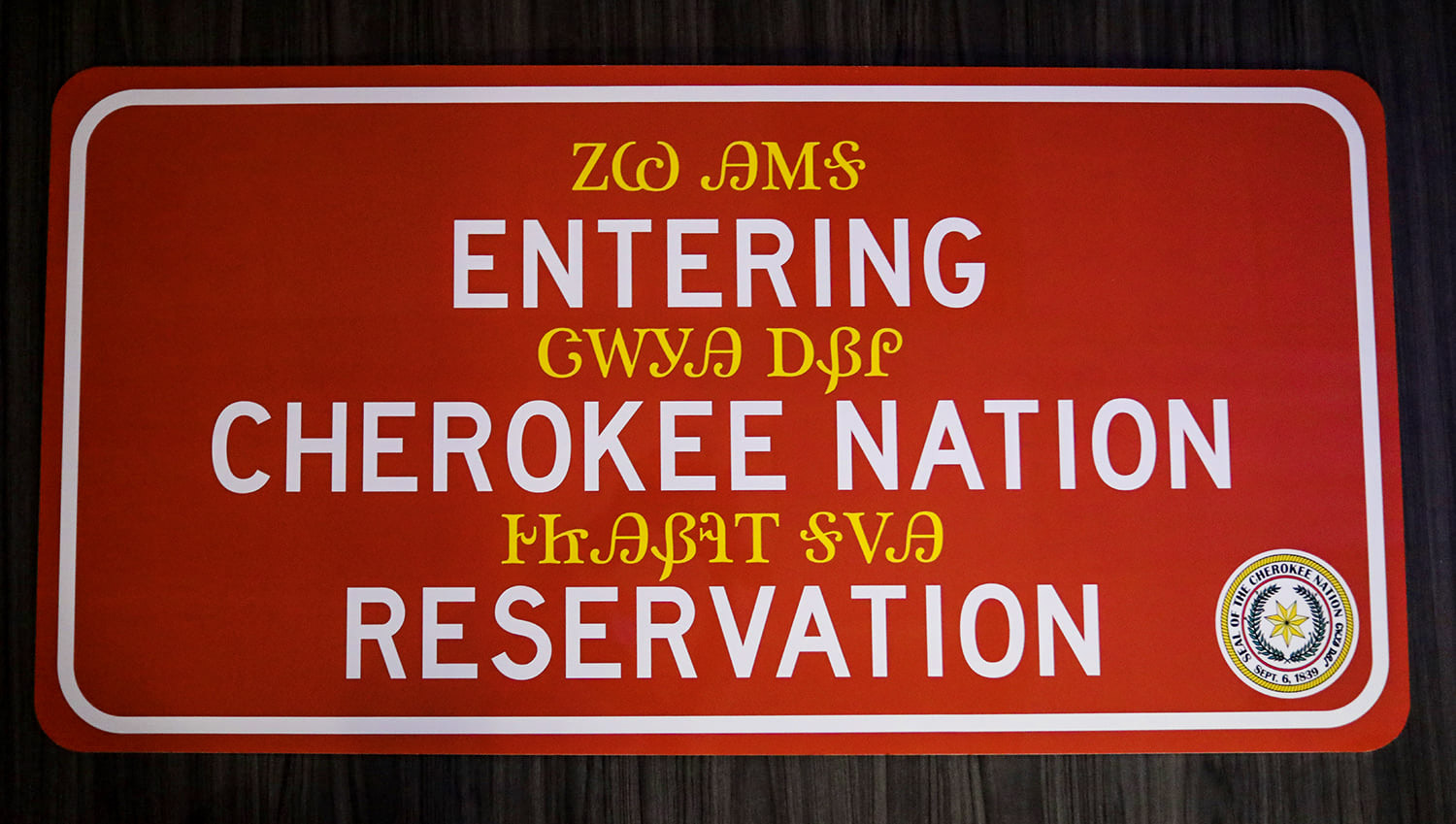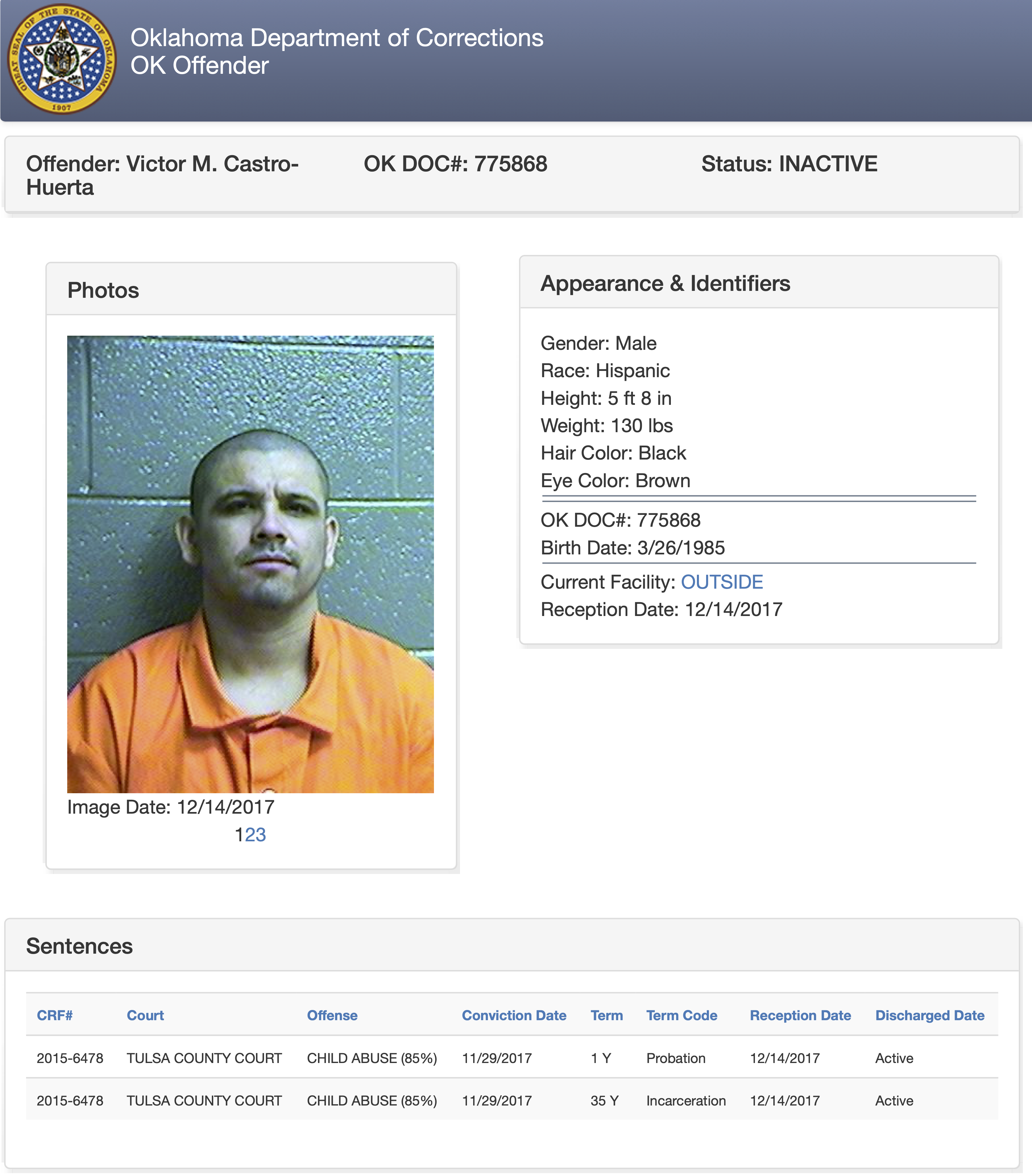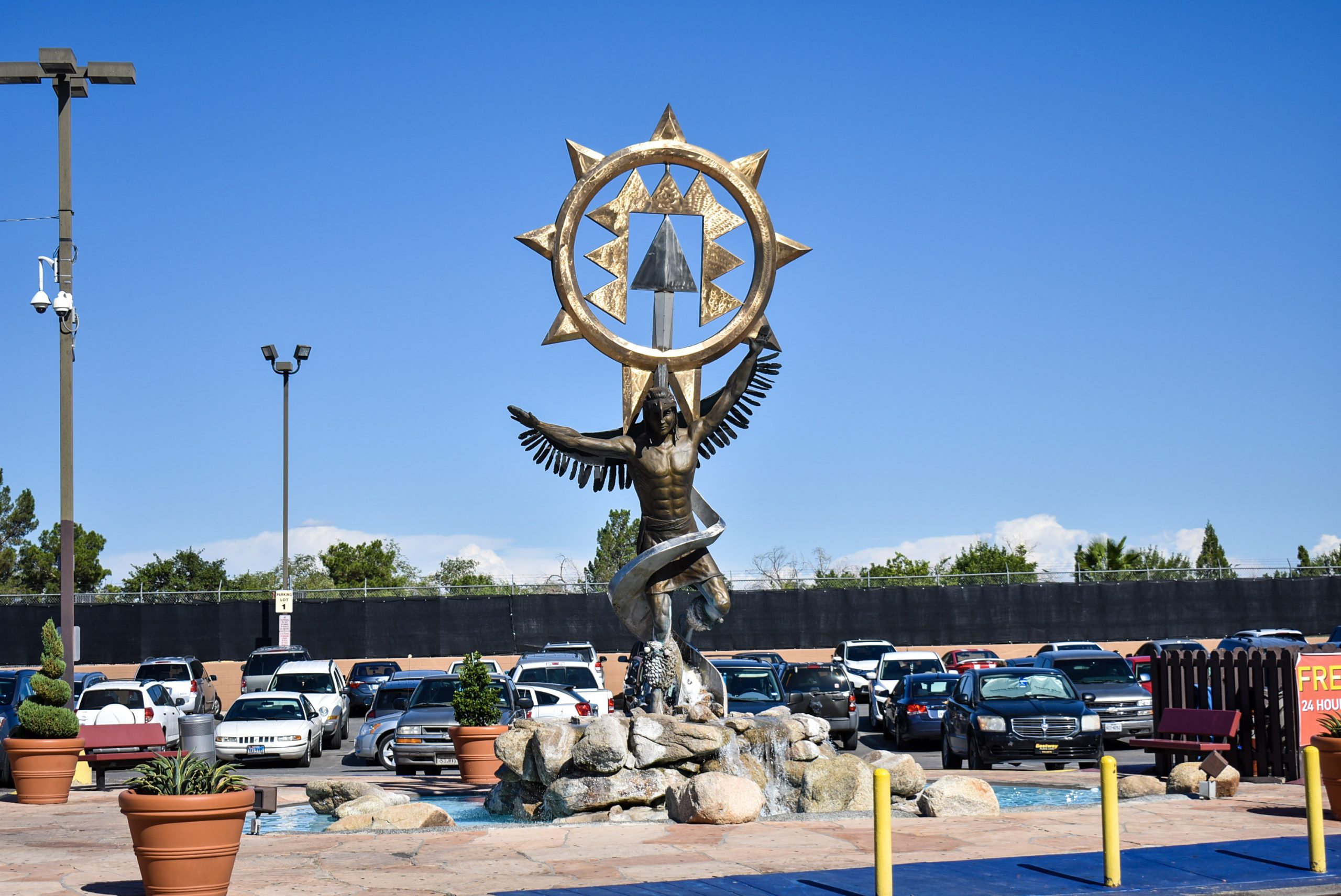Indianz.Com > News > Supreme Court surprises by taking up contentious Indian law case

Supreme Court surprises by taking up contentious Indian law case
Friday, January 21, 2022
Indianz.Com
WASHINGTON, D.C. —
The highest court in the land has added another Indian law case to its docket, taking up a contentious sovereignty dispute that has been simmering in the state of Oklahoma for nearly two years.
The U.S. Supreme Court on Friday afternoon agreed to hear Oklahoma v. Castro-Huerta to determine who can prosecute non-Indians in certain situations. And the justices put the case on the fast track, with oral argument set for April.
In the order granting the petition in Castro-Huerta, the justices made it clear that they are going to decide one question and one question only. According to the court, they will rule whether the state of Oklahoma has jurisdiction over non-Indian defendants who commit crimes against Indian victims, in Indian Country.
“The petition for a writ of certiorari is granted limited to Question 1 presented by the petition,” the one-paragraph order noted.
U.S. Supreme Court Order
But Republican officials in Oklahoma are seeing the development in another light. They are hoping the Supreme Court will use the occasion to overturn its historic decision in McGirt, the landmark case which has led to the reaffirmation of reservation lands throughout the state.
“I am encouraged that the Supreme Court has decided to address whether a state has authority to prosecute non-Indians who commit crimes against Indians in Indian Country,” Gov. Kevin Stitt (R) said in a statement in the afternoon.
“The fallout of the McGirt decision has been destructive,” Stitt continued, blaming the situation not on the defendant who is accused of child neglect
but on the Supreme Court’s July 2020 ruling that upheld a treaty promise made by the U.S. government.
“Criminals have used this decision to commit crimes without punishment,” asserted Stitt, who is a citizen of the Cherokee Nation. “Victims of crime, especially Native victims, have suffered by being forced to relive their worst nightmare in a second trial or having justice elude them completely.”
“The reality is that the McGirt decision has hamstrung law enforcement in half of the state,” said Stitt. “Oklahoma is a law and order state, and I was elected to protect all four million Oklahomans, regardless of their race or heritage. I will not stop fighting to ensure we have one set of rules to guarantee justice and equal protection under the law for all citizens.”
In a post on social media sharing his statement, Stitt characterized the legal development as a “Huge win” for Oklahoma. But his own tribal nation is disputing the premature victory, with Cherokee officials pointing out that the Supreme Court — by ignoring Question 2 in the Castro-Huerta petition — has not agreed to reconsider the ruling in McGirt. “The Cherokee Nation celebrates the Supreme Court’s rejection of a blatantly political request to overturn its McGirt decision,” Principal Chief Chuck Hoskin Jr. said in a statement on Friday. “With this rejection of the state’s request in this case, the court affirms its decision in McGirt.” “I am proud of the Cherokee Nation’s success over the past year and a half expanding our justice system in record speed and fighting for public safety, but it would have been more effective had the governor chosen to come to the table from the start,” added Hoskin, who has repeatedly clashed with the governor on sovereignty matters. “Now that Governor Stitt’s fight against tribal sovereignty has once again come up short, we hope he will consider joining tribes, rather than undermining our efforts, so we can focus on what is best for our tribal nations and all Oklahomans,” the chief of the largest federally recognized tribe in the U.S. stated.Huge win.
— Governor Kevin Stitt (@GovStitt) January 21, 2022
I applaud SCOTUS' decision to address the McGirt fallout. Read my full statement below.https://t.co/wOjTlA26lX
Cherokee Nation Attorney General Sara Hill, the highest ranking legal official on the reservation in northeastern Oklahoma, also highlighted the limited nature of the dispute in Castro-Huerta. She too stressed the need for cooperation, rather than conflict, when it comes to public safety in Indian Country. “The court will separately consider an Indian law issue unrelated to reservation status: whether a state maintains authority to prosecute a non-Indian who commits a crime against an Indian in Indian Country,” said Hill. “Regardless of the outcome, the Nation will continue to work with state, local and federal partners to ensure that the public is protected on the Cherokee Nation’s reservation.” Still, the threat to McGirt is far from over. Though the decision is less than two years old, the state of Oklahoma has filed dozens and dozens of petitions in hopes of getting the Supreme Court to overturn it. The language used in the petitions comes across as alarmist. “No recent decision of this Court has had a more immediate and destabilizing effect on life in an American State than McGirt v. Oklahoma,” John M. O’Connor, the state’s Republican attorney general wrote in his Castro-Huerta petition in September.Cherokee Nation responds to U.S. Supreme Court ruling that reservations stand.
— Cherokee Nation (@CherokeeNation) January 21, 2022
Read our statement at the link below ⤵️https://t.co/JyvVwjDjtV
Unlike the governor, however, O’Connor was not as eager to declare an early win. But he believes a decision in Castro-Huerta will help the state with a broader agenda — undermining the impact of McGirt. “Narrowing the scope of this case will not alleviate all of McGirt’s harmful consequences in our state, but it would ensure that non-Indians who victimize Indians can be prosecuted under the same rules as perpetrators who victimize non-Indians,” O’Connor said in a statement later on Friday. “More importantly, it will guarantee Indian victims the same protection and justice that all other Oklahomans enjoy.” The defendant in the case is Victor Manuel Castro-Huerta, a non-Indian. He was prosecuted in the Oklahoma court system for neglecting his step-daughter, who was five years old at the time she was found in deplorable conditions back in 2015. The incident occurred within the boundaries of the Cherokee Nation. Due to the location of the crime, and since the young victim is Indian — she is a citizen of the Eastern Band of Cherokee Indians, according to records — the Oklahoma Court of Criminal Appeals later ruled that the state lacked jurisdiction over Castro-Huerta. “The ruling in McGirt governs this case and requires us to find the District Court of Tulsa County did not have jurisdiction to prosecute Castro-Huerta,” the April 29, 2021, ruling read. Notably, state prosecutors did not dispute the continued existence of the 14-county Cherokee Reservation, or the history behind the reservation that was guaranteed to the tribe by treaty. Instead, the state attempted to argue for concurrent, or shared, jurisdiction over crimes committed by non-Indians in Indian Country. But the Oklahoma Court of Criminal Appeals noted that it had already rejected Oklahoma’s attempt to claim concurrent jurisdiction in a murder case known as Bosse v. State. O’Connor’s office did not pursue further appeals in Bosse. However, the non-Indian defendant, Shaun Michael Bosse, is asking the Supreme Court to accept his petition in hopes of getting the Oklahoma court system to revisit his death sentence. O’Connor, in a reply to the request, conceded that the outcome in Castro-Huerta will affect both matters. The state’s opening brief in Castro-Huerta is due by February 28. Castro-Huerta, who is being represented by an attorney with the Jenner & Block law firm, according to the docket sheet in No. 21-429, must file his reply by March 28 before arguments are heard in April. The exact date for the hearing has yet to be scheduled.NEW: SCOTUS grants AG O'Connor's request to take another look at the State's jurisdiction pic.twitter.com/NQA9ghDuKv
— Oklahoma Attorney General Gentner Drummond (@Okla_OAG) January 21, 2022

Related Stories
Gaylord News: Indian Child Welfare Act in limbo amid high-stakes challenge (January 4, 2022)Supreme Court takes up Indian law cases as tribes face new ‘unknown’ (October 19, 2021)
Chuck Hoskin: Protecting tribal sovereignty in Oklahoma (October 12, 2021)
Supreme Court returns to in-person arguments as justice tests positive for COVID-19 (October 1, 2021)
Indian Country Today: Alaska Native corporations finally receive COVID-19 funds (September 27, 2021)
Muscogee Nation: Tribal sovereignty is not a threat to Oklahoma (August 27, 2021)
Gaylord News: Funding bill passes without additional support for tribal justice systems (August 2, 2021)
Chuck Hoskin: Cherokee Nation celebrates sovereignty milestone (July 12, 2021)
Muscogee Nation proclaims Sovereignty Day on anniversary of historic Supreme Court ruling (July 9, 2021)
Nation’s highest court sides with Alaska Native corporations in COVID-19 dispute (June 25, 2021)
‘I wanted to cry’: Tribes welcome ruling in long-running health care dispute (June 21, 2021)
SCOTUSBlog: Supreme Court decision marks a first for tribal sovereignty (June 11, 2021)
Montana Free Press: Supreme Court supports tribal sovereignty in law enforcement case (June 11, 2021)
Cronkite News: Supreme Court finally ‘got it right’ on tribal sovereignty (June 4, 2021)
SCOTUSBlog: Supreme Court supports tribal sovereignty over non-Indians (June 3, 2021)
Supreme Court backs tribal sovereignty in law enforcement case (June 1, 2021)
Chuck Hoskin: Cherokee Nation seeks to strengthen sovereignty (May 17, 2021)
Indian Country nearly locked out of U.S. Supreme Court hearing (April 19, 2021)
Search
Filed Under
Tags
More Headlines
Press Release: National Museum of the American Indian hosts Native art market
AUDIO: Sea Lion Predation in the Pacific Northwest
Native America Calling: Tribal colleges see an uncertain federal funding road ahead
Native America Calling: Short films taking on big stories
Native America Calling: Advocates push back against new obstacles to Missing and Murdered Indigenous Relatives momentum
Native America Calling: For all its promise, AI is a potential threat to culture
NAFOA: 5 Things You Need to Know this Week (November 24, 2025)
Chuck Hoskin: Cherokee Nation invests in rural transportation
Native America Calling: Native candidates make strides in local elections
National Congress of American Indians returns incumbents and welcomes newcomers to leadership
National Congress of American Indians chooses leadership at big convention
‘Not voting is still a vote’: Native turnout drops amid changes in political winds
Native America Calling: Indigenous voices speak up, but have little clout at COP30
‘It’s bull****’: Indian Country confronts challenges at largest inter-tribal conference
Native America Calling: The constant burden on tribal hunters to justify their treaty rights
More Headlines
AUDIO: Sea Lion Predation in the Pacific Northwest
Native America Calling: Tribal colleges see an uncertain federal funding road ahead
Native America Calling: Short films taking on big stories
Native America Calling: Advocates push back against new obstacles to Missing and Murdered Indigenous Relatives momentum
Native America Calling: For all its promise, AI is a potential threat to culture
NAFOA: 5 Things You Need to Know this Week (November 24, 2025)
Chuck Hoskin: Cherokee Nation invests in rural transportation
Native America Calling: Native candidates make strides in local elections
National Congress of American Indians returns incumbents and welcomes newcomers to leadership
National Congress of American Indians chooses leadership at big convention
‘Not voting is still a vote’: Native turnout drops amid changes in political winds
Native America Calling: Indigenous voices speak up, but have little clout at COP30
‘It’s bull****’: Indian Country confronts challenges at largest inter-tribal conference
Native America Calling: The constant burden on tribal hunters to justify their treaty rights
More Headlines
